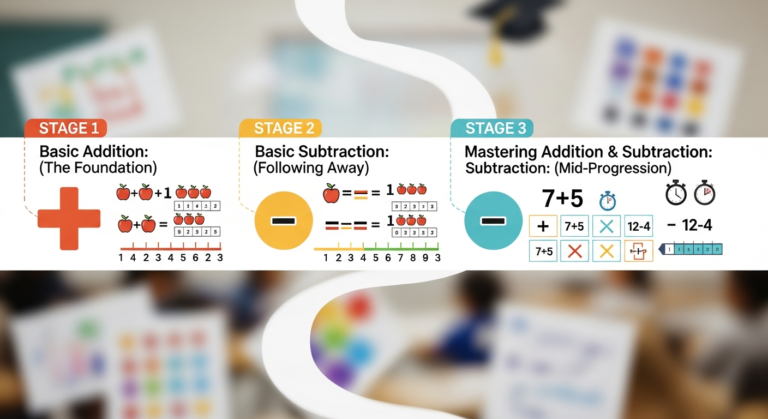Best Maths Games for Reception (Ages 4–5)
Why Maths Games Matter in Early Years
At ages 4–5, children are forming the foundational understanding of numbers, shapes, and patterns. Traditional methods often don’t hold their attention—but well-designed maths games can. The best maths games for Reception engage young learners with colour, movement, and repetition, all while building key skills aligned with the Early Years Foundation Stage (EYFS) framework.
Table of Contents
- Why Maths Games Matter in Early Years
- 1. Number Matching and Memory Games
- 2. Counting Songs with Movement
- 3. Board Games with Dice
- 4. Shape Hunts and Sorting Activities
- 5. Interactive Whiteboard Games
- 6. Hands-On Maths Trays
- 7. Outdoor Maths Games
- 8. Puzzle and Sorting Games
- 9. Role Play with Maths
- 10. Themed Maths Days
- What Makes a Good Reception Maths Game?
Fun-based learning improves retention, supports cognitive development, and fosters a positive attitude towards maths—essential for long-term academic success.
1. Number Matching and Memory Games
Simple card-matching games that pair numerals with quantities (like dots or pictures) are perfect for Reception learners. These games reinforce number recognition and one-to-one correspondence.
Use homemade cards or download printable resources that include 1–10 counting visuals to support hands-on learning.
2. Counting Songs with Movement
Counting songs like “Five Little Ducks” or “Ten Green Bottles” promote verbal counting and rhythm awareness. Adding actions (such as jumping or finger puppets) turns this into an interactive game that reinforces sequencing and subtraction.
These musical games also support listening and memory skills—ideal for kinaesthetic learners.
3. Board Games with Dice
Using child-friendly board games with dice (like simple snakes and ladders) introduces turn-taking, counting on, and numeral recognition. Children begin to understand the concept of quantity in motion.
Make your own game boards using numbers 1–10 or 1–20 to match ability levels.
4. Shape Hunts and Sorting Activities
Incorporate maths into physical activity by going on shape hunts around the classroom or home. Ask children to find items shaped like circles, squares, or triangles.
Follow up with sorting games where they categorise shapes by type or size—reinforcing geometry vocabulary and classification.
5. Interactive Whiteboard Games
Tools like Topmarks’ Teddy Numbers or Underwater Counting provide age-appropriate challenges that combine visual cues and immediate feedback. These games are short, engaging, and perfect for reinforcing key concepts like quantity and order.
Allow children to play in pairs to promote discussion and collaboration.
6. Hands-On Maths Trays
Set up trays with objects such as beads, counting bears, or blocks. Ask children to sort by colour, count into groups, or match numbers written on cards.
These tactile activities build fine motor skills and help visualise numerical concepts in a concrete way.
7. Outdoor Maths Games
Use playground space for number-line games, chalk hopscotch, or counting races. These outdoor games promote physical development and connect maths with real-world movement.
You can also use large number cards or bean bags to play “find the number” or “add the totals” team games.
8. Puzzle and Sorting Games
Jigsaw puzzles with numbers or shapes are excellent for improving focus and visual discrimination. Sorting games using size or quantity also support comparison skills and introduce mathematical language like “more,” “less,” or “equal.”
Look for wooden or foam sets for durability in classroom or home environments.
9. Role Play with Maths
Set up a pretend shop, café, or post office. Provide play money, price tags, and scales. Encourage children to “buy” and “sell” while recognising numbers and counting out amounts.
Role play supports problem-solving and real-life application of maths in meaningful ways.
10. Themed Maths Days
Plan themed days like “Number Safari” or “Shape Picnic” where all activities link to one concept. Incorporate crafts, movement, and stories to provide cross-curricular learning through maths.
These experiences reinforce concepts while keeping children excited and involved.
What Makes a Good Reception Maths Game?
The best maths games for Reception share a few key traits:
- Visuals and interaction to support different learning styles
- Short, repetitive formats that reinforce memory
- Immediate feedback to support understanding and motivation
- Real-life links to help children apply concepts meaningfully
Above all, they are fun, inclusive, and developmentally appropriate.


